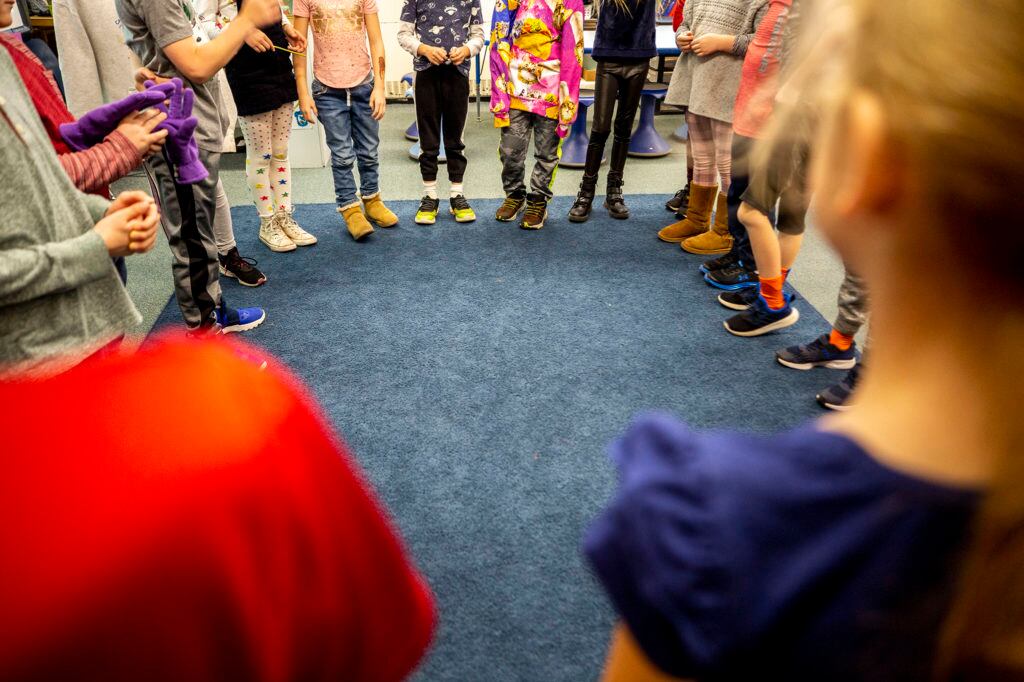About a third of Denver’s district-run schools are using federal coronavirus relief money to backfill their budgets due to declining student enrollment this year, next year, or both.
Denver schools are funded per pupil, and fewer students means less money to pay for teachers, mental health workers, and other staff. The pandemic has hastened enrollment declines, and the district is in the midst of coming up with criteria for when to close small schools.
Denver Public Schools currently serves approximately 90,000 students in preschool through 12th grade, which is about 3% fewer than it served two years ago.
Elementary schools have been particularly hard hit, and they make up the bulk of the 57 schools that received what the district calls budget assistance — a one-time cash infusion that has long been available to help Denver schools weather enrollment dips.
But the number of schools requesting budget assistance and the number that received it is higher than before the pandemic, with the district setting aside $8 million in federal education relief funding and another $1.6 million from the district’s general fund to help meet the need this year and next, said Chuck Carpenter, Denver Public Schools’ chief financial officer.
Usually, the district spends just $2 million to $3 million each year on budget assistance, he said.
“This reflects a much larger amount of money that we’re putting out there to deal with the volatility that COVID has brought on,” Carpenter said.
Preventing staff cuts at schools due to declining enrollment is just one way Denver Public Schools is spending the $302.8 million it received in the second and third rounds of federal education relief funding, which it must use by the end of the 2023-24 school year. The district must pass along $97.8 million of that to its independent charter schools, leaving $205 million for district-run schools.
The district is doling out a portion of those funds directly to schools to use as they see fit. Most schools are using the money — a total of $16 million this school year and $11 million next year — to pay the salaries of teachers, paraprofessionals, nurses, psychologists, social workers, counselors, interventionists, and other staff, according to a district tally.
Denver is also investing in districtwide initiatives, including social and emotional learning, math and literacy tutoring for students with learning gaps, and a virtual learning program.
Samuels Elementary School in far southeast Denver received about $167,500 in budget assistance this year and is set to get another $189,000 next year.
This is the first time in Principal Cesar Rivera’s eight years at Samuels that the school has had to request financial help, he said. Whereas Samuels enrolled nearly 500 students before the pandemic, the district is projecting enrollment will drop to 389 students next year, about 25 fewer than it has right now.
“We had a lot of positions that were in danger because of the numbers,” Rivera said.
With the budget assistance, Rivera said he was able to preserve several jobs, including paraprofessionals, a library technology specialist, and a restorative practices coordinator who helps students resolve conflicts.
District officials didn’t grant him all the money he requested, however, and he had to lay off a special education teacher and a part-time kindergarten teacher who shared a class with a teacher who coaches other teachers half time.
Rivera hopes more students will enroll at Samuels next fall and he’ll be able to use the extra per-pupil funding to hire back the part-time kindergarten teacher. If he can’t, a teacher who currently helps English language learners will have to teach the kindergarten class part time, setting off a ripple of consequences for some of Samuel’s most high-needs students.
“Without any of these positions, without this money to schools, children’s basic needs educationally — whether it’s literacy or math or social emotional — are not going to be met,” he said.
Melanie Asmar is a senior reporter for Chalkbeat Colorado, covering Denver Public Schools. Contact Melanie at masmar@chalkbeat.org.






